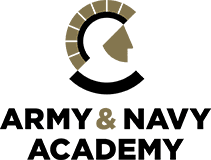 Fostering a growth mindset can help high school students face challenges and adversity with a positive attitude. In this article, learn more about how students can cultivate a growth mindset, get answers to your questions, and find a private school aligned with a growth mindset.
Fostering a growth mindset can help high school students face challenges and adversity with a positive attitude. In this article, learn more about how students can cultivate a growth mindset, get answers to your questions, and find a private school aligned with a growth mindset.
So, just what is a growth mindset in education? Well, first, keep in mind that some schools are more ideal than others for this type of personal growth and approaches may differ widely. However, a high school education at a private boarding school or a military boarding school can be a life-changing setting, one that is uniquely set up to cultivate a growth mindset in their student body. Just by virtue of living away from home, boarding school students tend to advance their talents, trust their intelligence, and become open to growth as they face daily challenges.
To help you gain an understanding of the growth mindset concept and the way it is being incorporated within education, here are some commonly asked questions below.
Growth Mindset in Education:
- What is a growth mindset in education? According to Western Governors University, here is a simple description: “a growth mindset means that you thrive on challenge, and don’t see failure as a way to describe yourself but as a springboard for growth and developing your abilities. Your intelligence and talents are all susceptible to growth.”
- Who coined this term? “Growth mindset refers to a learning theory developed by Dr. Carol Dweck. It revolves around the belief that you can improve intelligence, ability and performance. The opposite, a fixed mindset, refers to the belief that a person’s talents are set in stone . Years of research have shown that mindset is malleable.” – Inner Drive Co.
- How do you foster a growth mindset in the classroom? Transforming Education and Everything mom provide toolkits and a whole list of fun growth mindset activities to incorporate at home and in the classroom. Begin with some positive goal posters and bookmarks with key phrases, then begin doing some exercises like the “strength silhouette” and situation worksheets. If your child attends a private school, ask about the ways they foster a growth mindset. For example, boarding schools may incorporate activities into the classroom, but also incorporate a growth mindset into electives, clubs, sports and other extracurricular activities. On a daily basis, boarding schools require students to stretch themselves by trying new things (e.g. classes, leadership roles, sports, clubs, trips, activities, community service).
- What does it mean to have a fixed mindset? Renaissance.com makes this concept very understandable. Basically, “in a fixed mindset, people believe their basic qualities, like their intelligence or talent, are simply fixed traits. They spend their time documenting their intelligence or talent instead of developing them. They also believe that talent alone creates success—without effort.” This helps explain why some kids are more inclined to give up, not try new things, and become risk-averse. This is why the growth mindset is so important to teach in public and private schools.
- How can students change their mindset?
- Identify the areas where you may be more open vs. fixed.
- Focus on decisions and choices about the mental narrative you create.
- Find and follow positive mentors, coaches, guides, and teachers.
- Avoid comparing yourself or seeking approval from others.
- If something doesn’t work out, see it as a way to learn from experience.
- Take actions to pursue new challenges and set realistic goals.
6. How can I find a school that focuses on a growth mindset?
- Educational Consultants – The Bertram Group writes excellent articles about day schools, boarding schools, as well as colleges and universities. In particular, they point out how boarding schools are ideal environments to cultivate a growth mindset.
“Independent schools in general—and boarding schools in particular—are masters at nurturing growth mindsets. Inspiring faculty encourage students to take healthy risks, put failing in perspective, and identify new strategies. The immersive community of boarding school deepens these mentor relationships, reinforces self-directed learning, and offers students an incomparable breadth of academic, athletic, and extracurricular opportunities. In totality, the boarding school experience builds awareness, cultivates, and actively supports a growth mindset that will guide students long past graduation.” – Bertran Group
- Independent Educational Consultants Association – If you prefer to check out a list of consultants in your area, IECA can be a great resource. While some consultants focus on college admission, other consultants help families find the right military academy, boarding school, therapeutic program, or local private day school.
- School Directories – To see listings of schools and to read overviews, check out Boarding School Review, Private School Review, Niche, Great Schools, and Study International.
- Admission Campus Tours – Once you have pinned down some private high schools of interest, reach out to speak with the admission staff. They will tell you how they foster a growth mindset at their school. Some schools may use other terms, but look for schools that bring up mental fitness, personal growth, character development, and offer leadership training and strong mentorship.
- Social Media and Blogs – If a school does social media posts that show high school students in action and facing challenges, this is probably a good sign. Also, if a private school writes blogs on growth mindset or related topics, you can rest assured, this is part of their foundation. Look for posts and blogs about tenacity, grit, resilience, mentorship, leadership training, character development, mental health, internships, and counseling.
- Review and Assess – A growth mindset in education should be holistic, so think about the school’s approach to learning, as well as extracurricular programs and activities within this context.
-
- Academics – What is the approach to pedagogy? Is it focused on experimentation, hands-on or interactive learning? Is it rigorous college prep? Do they offer a variety of electives in your teen’s areas of interest that will stretch his/her interests?
-
- Athletics – What are the coaches like? Will they mentor, guide, and coach your teen to try new sports and hit peak performance? How do they address losses?
-
- Leadership – What opportunities will foster a growth mindset through leadership education? Think outside the box and check out military boarding schools, where they offer leadership education training (LET) as part of JROTC. Cadets learn about leadership, management, teamwork, communication, conflict resolution, health, and much more. These rigorous academies are college preparatory and present students with challenges on all fronts: academics, athletics, and campus life.
-
- Character – What are the core values of the school? Look for respect, responsibility, integrity, compassion, and other aligned growth mindset values. Does the school offer an Honors Council? Do they participate in Model United Nations? Do they require community service? What are the expectations for student leaders?
As you can see, a growth mindset can be learned and become a way of life. It helps students ignite their passion for learning, rather than shy away from new experiences. Although high school students can do activities on their own and work on adjusting their attitudes, it is far better to be part of an educational institution committed to personal growth and development.
As you search for the right school, make sure you ask questions to ensure your teenager will grow academically, physically, socially, and emotionally while in high school. Once your child is enrolled, make sure you support your teen by using similar growth mindset approaches at home.

Candace Heidenrich is the CEO of Aperture Advisory Associates, where she works with private secondary and higher education leaders to strengthen programs and practices. She founded Aperture in 2018 after more than a decade in a senior administrative role at a boarding school in California. Additionally, she held faculty and chair positions at private schools and colleges in Los Angeles and Ojai. Her background also includes director and executive level positions with start-ups and Fortune 500 corporations.
While earning her B.A. in Education and Humanities in the Lawrence Henry Gipson Scholar program, she studied abroad at Oxford before pursuing her master’s at the University of California, Santa Barbara. A frequent speaker at national conferences, she is a recognized thought leader and authority on enrollment management and marketing best practices.
